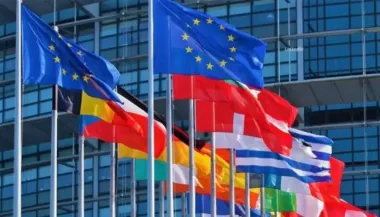The European Union has adopted new tariffs on agricultural products and fertilizers from the RF and the RB

The EU has adopted new tariffs on products from the Russia and the Belarus
This was announced by diplomats participating in the meeting of European ministers.
The EU Council today approved new tariffs on Russian and Belarusian agricultural goods and fertilizers. They will come into effect on July 1, a source said.
The EU Council has adopted regulations imposing new tariffs on remaining agricultural goods and certain fertilizers from Russia and Belarus that were not already subject to additional customs duties. The aim is to reduce the EU's dependence on such imports and to reduce Russian export earnings in order to limit Russia's ability to continue financing its aggressive war against Ukraine.
The implementation of this decision will be monitored to ensure protection for European farmers and fertilizer producers, while tariffs on Russian and Belarusian nitrogen fertilizers will be introduced gradually, with a transition period of three years.
The new tariffs will apply against agricultural goods that accounted for 15 percent of all agricultural imports from Russia to the EU in 2023. The new regulatory rules will come into effect on July 1, 2025.
According to statistics provided in the report, in 2023, fertilizer imports from Russia accounted for about 25 percent of total imports of these products into the EU, amounting to €1.28 billion.
As reported, the European Parliament's Committee on International Trade previously supported the proposal of the European Commission and the Council of the EU to increase tariffs on imports of certain agricultural goods from Russia and Belarus by 50%.
In particular, the new tariffs will apply to sugar, vinegar, flour and animal feed. Fertilizers imported from Russia and Belarus will be subject to a 6.5% tariff, as well as an additional customs duty of 40-45 euros per ton for the period 2025-2026. It is expected that such a customs duty on Russian and Belarusian fertilizers will increase to 430 euros per ton by 2028.










